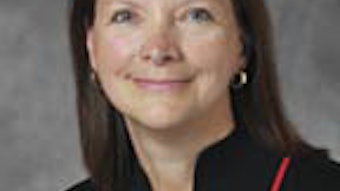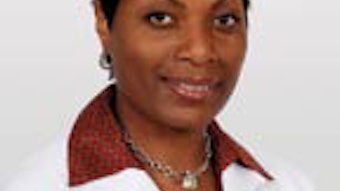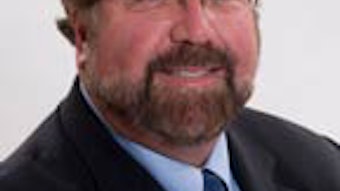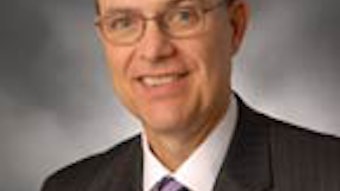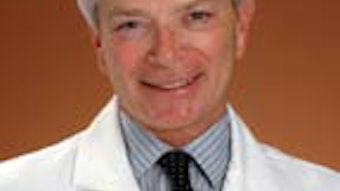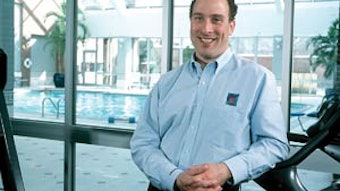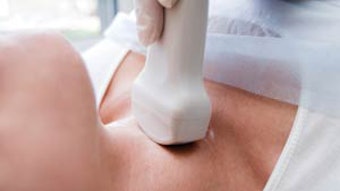The AMA Annual Meeting Report
Liana Puscas, MD AAO-HNS Delegation Chair to the AMA Duke University Durham, NC In June, the American Medical Association (AMA) held its 2011 Annual Meeting in Chicago, IL. Your Academy was represented by Liana Puscas, MD, Delegation Chair, and Delegates Michael S. Goldrich, MD, Chair of the AMA Otolaryngology Section Council; Shannon P. Pryor, MD; Robert Puchalski, MD; and Alternate Delegates Alpen A. Patel, MD, and David R. Nielsen, MD, AAO-HNS EVP/CEO. The AMA House of Delegates (HOD) discussed implementation issues surrounding the Patient Protection and Affordable Care Act (ACA), the healthcare reform law enacted in 2010. The HOD reaffirmed policy advocating that state governments be given the freedom to develop and test different models for covering the uninsured, which now number approximately 50 million. Specifically, the AMA HOD adopted policy directing the AMA to pursue: • repeal of the Independent Payment Advisory Board (IPAB); • repeal of the non-physician provider “non-discrimination” provision; • enactment of comprehensive medical liability reform; • enactment of long-term Medicare physician payment reform, including permitting patients to privately contract with physicians not participating in the Medicare program; • enactment of antitrust reform to permit independently practicing physicians to collectively negotiate with health insurance companies; • expansion of the use of health savings accounts as a means to provide health insurance coverage; and • study of the repeal of the Medicare Cost/Quality Index. The AMA HOD also voted to urge third-party payers to include facility fee payments for procedures using more than local anesthesia in accredited office-based surgical facilities. Currently, there are a number of insurers that do not pay a physician the facility fee if a conscious sedation procedure is performed in an office-based, accredited facility, even if they would normally pay that facility fee to a hospital or an ambulatory surgical center. The HOD also discussed the simplification and reimbursement of the “prior authorization” process. The HOD asked the AMA to foster, via regulatory or legislative means, the creation of a mechanism beyond the Resource-Based Relative Value Scale (RBRVS) to allow physicians to receive payment for the professional time and office expense involved in preauthorization. In a different but related resolution, the HOD also passed policy asking the AMA to work toward a requirement that physicians be paid appropriately and promptly for any and all services performed for their patients as required by insurance companies, Medicaid, or Medicare. The AMA was instructed to encourage appropriate payment for physician and staff work and time with prior authorizations and other restrictive formulary processes, as well as simplification of forms and streamlining of procedures to reduce physician and staff workload and time expended. The next meeting of the AMA HOD is scheduled for November 2011 in New Orleans, LA.
In June, the American Medical Association (AMA) held its 2011 Annual Meeting in Chicago, IL. Your Academy was represented by Liana Puscas, MD, Delegation Chair, and Delegates Michael S. Goldrich, MD, Chair of the AMA Otolaryngology Section Council; Shannon P. Pryor, MD; Robert Puchalski, MD; and Alternate Delegates Alpen A. Patel, MD, and David R. Nielsen, MD, AAO-HNS EVP/CEO.
The AMA House of Delegates (HOD) discussed implementation issues surrounding the Patient Protection and Affordable Care Act (ACA), the healthcare reform law enacted in 2010. The HOD reaffirmed policy advocating that state governments be given the freedom to develop and test different models for covering the uninsured, which now number approximately 50 million. Specifically, the AMA HOD adopted policy directing the AMA to pursue:
| • | repeal of the Independent Payment Advisory Board (IPAB); |
| • | repeal of the non-physician provider “non-discrimination” provision; |
| • | enactment of comprehensive medical liability reform; |
| • | enactment of long-term Medicare physician payment reform, including permitting patients to privately contract with physicians not participating in the Medicare program; |
| • | enactment of antitrust reform to permit independently practicing physicians to collectively negotiate with health insurance companies; |
| • | expansion of the use of health savings accounts as a means to provide health insurance coverage; and |
| • | study of the repeal of the Medicare Cost/Quality Index. |
The AMA HOD also voted to urge third-party payers to include facility fee payments for procedures using more than local anesthesia in accredited office-based surgical facilities. Currently, there are a number of insurers that do not pay a physician the facility fee if a conscious sedation procedure is performed in an office-based, accredited facility, even if they would normally pay that facility fee to a hospital or an ambulatory surgical center.
The HOD also discussed the simplification and reimbursement of the “prior authorization” process. The HOD asked the AMA to foster, via regulatory or legislative means, the creation of a mechanism beyond the Resource-Based Relative Value Scale (RBRVS) to allow physicians to receive payment for the professional time and office expense involved in preauthorization. In a different but related resolution, the HOD also passed policy asking the AMA to work toward a requirement that physicians be paid appropriately and promptly for any and all services performed for their patients as required by insurance companies, Medicaid, or Medicare. The AMA was instructed to encourage appropriate payment for physician and staff work and time with prior authorizations and other restrictive formulary processes, as well as simplification of forms and streamlining of procedures to reduce physician and staff workload and time expended.
The next meeting of the AMA HOD is scheduled for November 2011 in New Orleans, LA.



